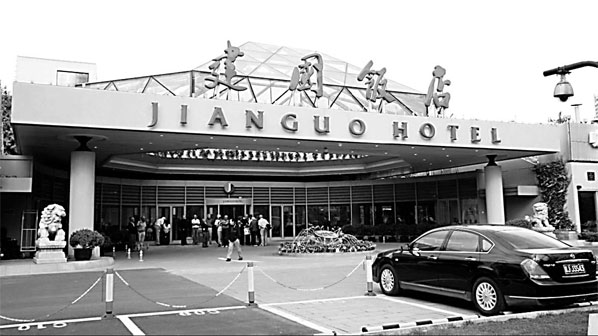
|
BIZCHINA> Center
 |
|
Hospitality industry goes along with trends
By Ding Qingfen (China Daily)
Updated: 2008-05-19 11:35  It's no exaggeration to say the evolution of China's hospitality industry during the past 30 years is a prime example of how the nation's economy has also progressed. As the history record shows, dating back to the Shang Dynasty (1,600 BC-1,046 BC), there were accommodations for travelers in China, though the facilities markedly changed over the next 3,000 years. After 1949, when the People's Republic of China was founded, the government turned a few buildings into guesthouses to house the then few foreign visitors and delegates. But most looked shabby from the outside, and were sparsely equipped. An exception was the State-owned Beijing Friendship Hotel founded in 1954 and used primarily to house foreign notables, journalists and businesspeople. About three decades later, the concept of a "star hotel" - already common in Europe and the United States - arrived in China shortly after 1978, when the country's opening-up policy began. The then administration in charge of China's tourism industry decided to build eight Chinese-foreign joint venture hotels in the mainland's three cities - Beijing, Shanghai and Guangzhou - to meet the needs of the growing amount of overseas businesspeople and more discerning tourists. It signaled the beginning of China's modern hospitality industry. But exactly which luxury hotel was first approved by the Chinese government has long been debated in the hospitality circle. Was it the Guangzhou White Swan or Beijing Jian'guo Hotel?
The 843-room White Swan was co-invested by Guangdong government and the Hong Kong entrepreneur, media baron (South China Morning Post) and philanthropist, Henry Fok Ying-tung, with an initial investment of $49 million. In July 1979, the two sides signed a preliminary agreement and the building opened in February 1983. What motivated Fok to make such a bold decision was not the hope of quick profits, but his belief in the progress of China's reforms. He personally got involved in everything from site selection to the hotel's design, construction and management style. When the hotel opened, Fok insisted the hotel must be open to all which encouraged slews of local residents and visitors to come around to come to simply hang out in the lobby, where they often snapped pictures of the 10-meter-long waterfall. Amazingly, the hotel made a profit during its very first year of operation, and now is still one of the most popular five-star hotels in Guangzhou. But more people cite Beijing's Jian'guo as the first post-reform posh hotel property, a fact also confirmed by Shao Qiwei, director of China National Tourism Administration, who, after searching the old files, confirmed it in early 2008 during a small gathering. The 468-room Jian'guo hotel was a joint venture by the Beijing government and a Chinese- American entrepreneur named Slam Chen who had been working in the American hospitality sector, with the former holding 51 percent shares. Located in the central business district (CBD ), the hotel opened earlier than White Swan, in April 1982. (For more biz stories, please visit Industries)
|